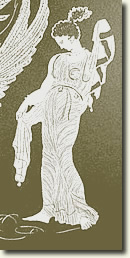It is a tribute to the philosopher Plato that the term ‘sophistic’ still survives as a label of scorn for people who play fast and loose with the truth.
Governments have always sought to impose laws and rules of conduct that civilize daily life. Even so, most Western democracies value the ideal of individual freedom, but always with exceptions. Those who have sought to rein in dissent and vigorous public debate have had distinguished allies, including the Greek philosopher Plato. He spent part of his life arguing that ordinary people were frequently incapable of making decisions about who should govern their communities. He thought they lacked the necessary intelligence and training, believing that few citizens can discriminate between the thoughtful judgments of a well-trained leader—described in The Republic as a philosopher king—and the irrational pandering of the well-trained persuader. A leader chosen by popular vote would substitute flattery of the mob in place of true wisdom. Leaders guided by public opinion were bound to be as misguided and dangerous.
Plato scorned itinerant teachers of rhetoric, who were collectively known as Sophists.

The great philosopher’s view did not go unchallenged. A prolonged debate over the wisdom of democracy developed between him and other teachers who traveled through the city-democracies along the coasts of Greece, Sicily, and Italy. He was deeply troubled by the activities of these independent tutors, whom affluent parents hired to educate their children. (In the 5th Century b.c. the enlightenment of the Hellenic world ended short of including women, slaves, and the impoverished as full citizens—even in democratic Athens.) Among these first teachers was Corax, who instructed citizens who needed to improve their persuasive abilities in the recently democratized city of Syracuse. Public advocacy was becoming an important skill. Indeed, the Greeks had their own Goddess of Persuasion, Peitho.
Plato scorned Corax and other itinerant teachers, who were collectively known as Sophists. They suffered his wrath partly because they worked outside of the prestigious intellectual center of Athens, and partly because these teachers taught the techniques of persuasion.
Ouch.
His aversion to the Sophists was so strong that he named some of the weak-thinking characters in some of his dialogues after several of them. It is a tribute to Plato’s importance that the term sophistic still survives as a label of scorn for people who play too loosely with the truth.
Yet, even with his disapproval, it still may be something of a badge of honor to be a teacher of persuasion. At least that’s what Plato’s own best student thought. Aristotle wrote the first useful textbook of persuasion, The Rhetoric. He rightly argued that effective advocacy was a justifiable form of self-defense. Moreover, he noted, some smart people need help in communicating their views to others.
There’s a lesson for our times here. The suppression of dissent in favor of a supposedly all-knowing leader is never good. Americans rightly consider it their birthright that they can engage in public advocacy without risking their lives. This certainly doesn’t make all advocacy rational. That is still up to us to determine in each particular instance.
![]()